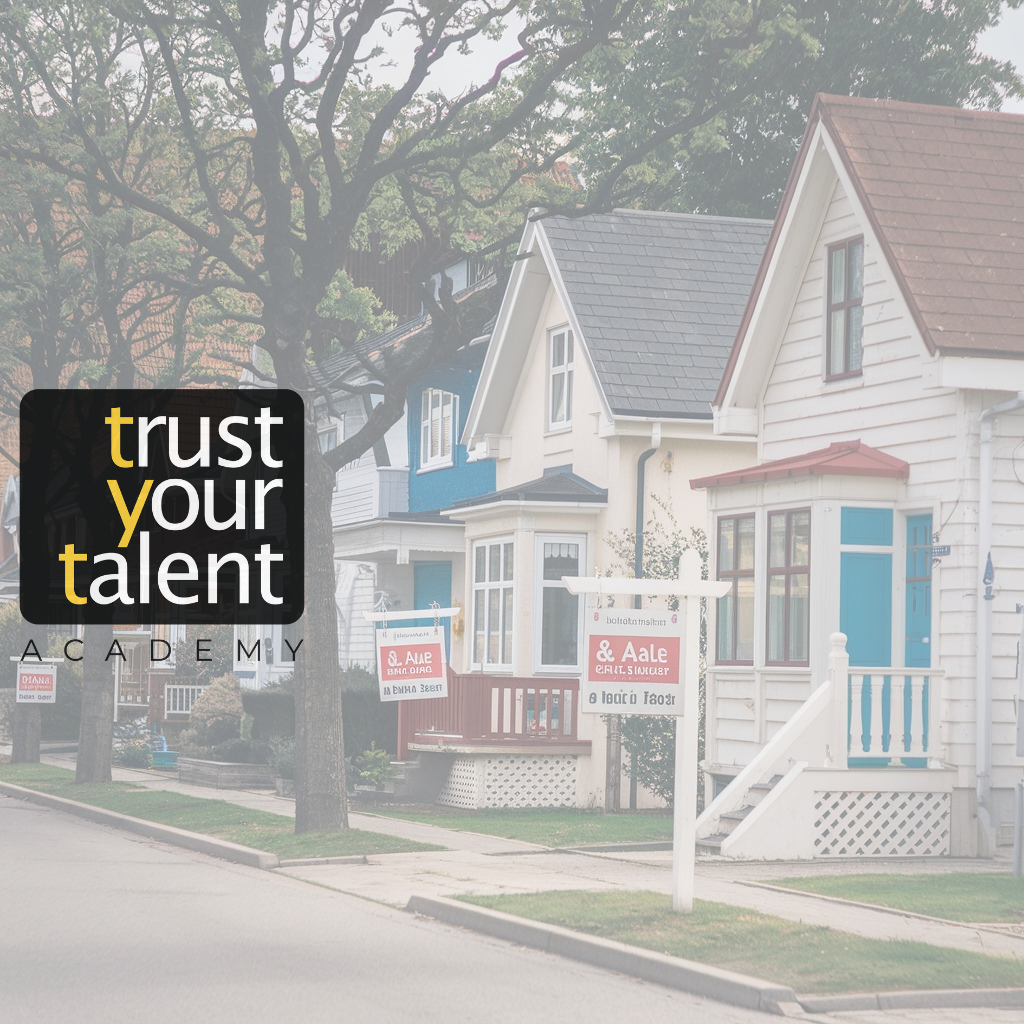Cash Flow in Real Estate: Your Ultimate Guide to Property Profits
Cash flow in real estate is the net income remaining after all expenses, such as mortgage, taxes, and maintenance, are paid. It’s a crucial metric for assessing a property’s profitability and ensuring a steady return on investment. At Trust Your Talent, we’re committed to helping real estate investors in Canada achieve success by understanding key concepts such as cash flow in real estate.
Cash flow is one of the most important metrics when it comes to evaluating the profitability of an investment property. Whether you’re new to real estate investing or looking to optimize your portfolio, understanding cash flow is essential to making informed decisions and maximizing returns.
What is Cash Flow in Real Estate?
Cash flow in real estate refers to the amount of money left after all operating expenses are paid. It’s the net income generated by a property after accounting for expenses such as mortgage payments, property taxes, insurance, and maintenance fees.
For instance, if a property generates $2,500 in monthly rental income and incurs $1,800 in total monthly expenses, your cash flow would be $700 per month. The goal of every investor is to achieve positive cash flow, where the rental income exceeds all associated costs, ensuring a steady return on investment. At Trust Your Talent, we educate our clients on how to effectively calculate and manage cash flow to grow their wealth through real estate.
What is a Good Cash Flow Ratio in Real Estate?
A good cash flow ratio depends on the market, property type, and personal investment goals. Generally, a cash flow ratio between 8% and 12% is considered ideal. This ratio represents the amount of cash flow generated relative to the total investment.
The formula for calculating cash flow ratio is:
Cash Flow Ratio = ( Annual Net Cash Flow / Total Investment ) × 100
For example, if you invest $200,000 in a property and generate $16,000 in annual net cash flow, your cash flow ratio is 8%. Properties with higher cash flow ratios tend to require more hands-on management. Learn more about real estate careers in Canada that can provide you with opportunities to grow your investments at Real Estate Careers: Unlocking Opportunities in Canada.
What Type of Real Estate Has the Most Cash Flow?
Different types of real estate offer varying cash flow potential. Some of the most profitable types of real estate for generating high cash flow include:
- Multi-family properties: These properties, such as duplexes and apartment buildings, allow you to earn rental income from multiple units, boosting your overall cash flow.
- Commercial properties: Office spaces, retail stores, and warehouses typically yield high cash flow, especially in prime locations. However, they often require larger upfront investments.
- Vacation rentals: These properties can generate high returns, particularly in tourist hotspots, though they require active management.
To learn how to earn money from various real estate investments, explore our Comprehensive Guide for Beginners.
What is Real Estate Cash Flow Yield?
Real estate cash flow yield is another key metric that investors use to assess the return on investment from cash flow alone. The cash flow yield formula is:
Cash Flow Yield = ( Annual Net Cash Flow / Total Investment ) × 100
For instance, if you invest $300,000 in a property and it generates $12,000 in annual net cash flow, your cash flow yield would be 4%. Investors looking for a solid return often aim for a higher yield, though this varies depending on market conditions and investment goals.
Optimizing Cash Flow in Canadian Real Estate
Maximizing cash flow in real estate investments requires careful planning and strategic decisions. Here are some ways to improve cash flow:
- Invest in growth markets: Certain Canadian cities, such as Calgary and Edmonton, are emerging markets where property prices are lower, but cash flow potential remains high.
- Reduce operating costs: Minimizing expenses such as maintenance and management fees can lead to greater net cash flow.
- Utilize tax deductions: Canadian real estate investors can take advantage of tax benefits, such as deductions for mortgage interest, depreciation, and operating expenses. These savings can significantly improve your cash flow.
For those considering a career in real estate to enhance their investment knowledge, explore How to Become a Real Estate Agent in Canada: A Complete Guide.
Conclusion
At Trust Your Talent, we believe that understanding cash flow in real estate is essential for Canadian investors aiming to build long-term wealth. Whether you’re investing in multi-family properties, commercial real estate, or vacation rentals, managing and maximizing your cash flow is crucial to achieving financial success.
For more information on becoming a real estate professional or optimizing your real estate portfolio, explore our guides, including How to Become a Real Estate Broker in Canada and How Long Does It Take to Get a Realtor License in Canada?.
Related Questions
1. What is cash flow in real estate?
Cash flow is the net income generated from a property after all expenses, including mortgage, taxes, and maintenance, are deducted. Positive cash flow is the key to a successful real estate investment.
2. What is a good cash flow ratio in real estate?
A good cash flow ratio is generally between 8% and 12%, depending on the property and market conditions.
3. What type of real estate has the most cash flow?
Multi-family properties and commercial properties often provide the highest cash flow due to their multiple income streams.
4. What is real estate cash flow yield?
Real estate cash flow yield is the percentage return on investment based solely on cash flow. It’s calculated by dividing the annual net cash flow by the total investment.









